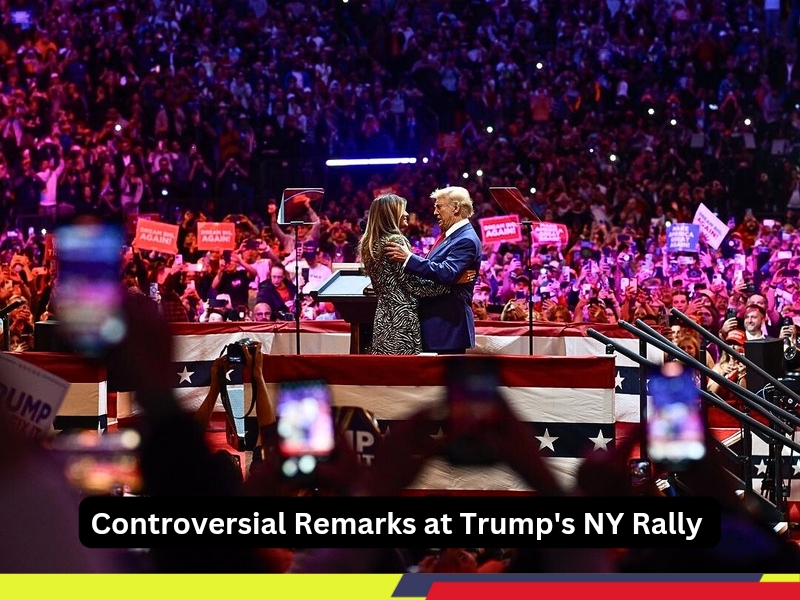During Donald Trump’s recent rally in New York City, a standup comedian’s opening set sparked outrage by making derogatory comments about various ethnic groups, including Puerto Ricans. The comic described Puerto Rico as an “island of garbage,” a statement that has drawn criticism for its insensitivity and perpetuation of stereotypes .
A Divisive Performance
The comedian’s act, intended to entertain, instead stirred controversy as it also included negative remarks about Latino communities, African Americans, Palestinians, and Jews. This segment highlighted the ongoing tensions surrounding racial and ethnic identity in the U.S., especially in the context of political discourse . Many attendees and commentators condemned the performance, viewing it as a reflection of broader societal issues of racism and intolerance .
Reactions from the Community
Community leaders and advocates have expressed their dismay, stating that such comments perpetuate harmful stereotypes and create division rather than fostering unity. Critics argue that Trump’s endorsement of such humor at his rally normalizes racist attitudes and undermines efforts to promote inclusivity and respect for all communities .
The Bigger Picture
As Trump’s rally continues to garner attention, it raises questions about the role of humor in politics and the responsibility of public figures to challenge rather than endorse divisive rhetoric. With elections approaching, how politicians engage with issues of race and identity will be closely scrutinized by voters seeking leadership that promotes equality and understanding.
The controversy surrounding the rally illustrates the challenges faced by American society in navigating issues of race, identity, and political expression. As discussions about inclusivity and respect gain momentum, it is essential to critically assess the narratives that dominate public discourse .




